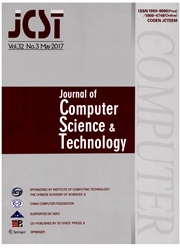

 中文摘要:
中文摘要:
Xiao-Min Hu received her BSc. degree in computer science in 2006 from Sun Yat-Sen University, Guangzhou, China. She is currently a Ph.D. candidate majored in computer application and technology in Sun Yat-Sen University. Her research interests include artificial intelligence, evolutionary computation, routing optimization and biological information. E-mail: junzhang@ieee.org Corresponding Author Jun Zhang received the Ph.D. degree in electrical engineering from City University of Hong Kong, in 2002. From 2003 to 2004, he was a Brain Korean 21 Postdoctoral Fellow in the Department of EECS, Korea Advanced Institute of Science and Technology (KAIST). Since 2004, he has been with the Sun Yat- Sen University, Guangzhou, China.where he is currently a professor with the Department of Computer Science. He has authored three research book chapters and over 50 refereed technical papers in his research areas. His research interests include genetic algorithms, ant colony system, fuzzy logic, neural network, cash flow optimization and nonlinear time series analysis and prediction. Yun Li received the B.S. degree in radio electronics science from Sichuan University, Chengdu, China, in 1984, an M.Sc. degree in electronic engineering from University of Electronic Science and Technology of China (UESTC), Chengdu, in 1987, and a Ph.D. degree in computing and control enclyde, Glasgow, U.K., in 1990. From 1989 to 1990, he worked at the U.K. National Engineering Laboratory and for Industrial Systems and Control Limited, Glasgow, U.K. He became a lecturer at the University of Glasgow in 1991. In 2002, he served as a visiting professor at Kumamoto University, Japan. He is currently a senior lecturer at University of Glasgow and a visiting professor at UESTC. In 1996, he independently invented the "indefinite scattering matrix" theory, which opened up a ground-breaking way for microwave feedback circuit design. From 1987 to 1991, he carried out leading work in parallel processing for recursive filtering and feedback con
 同期刊论文项目
同期刊论文项目
 同项目期刊论文
同项目期刊论文
 期刊信息
期刊信息
